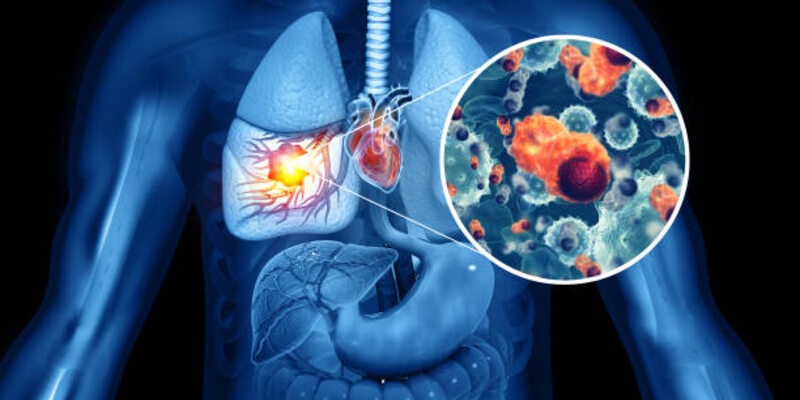Do you suffer from persistent joint pain and inflammation? Or have you noticed a stiff and swollen feeling in your joints that won’t go away? You could be experiencing the effects of arthritis, a common condition affecting many adults worldwide. This debilitating disease can make even the simplest tasks painful and difficult to accomplish. But don’t worry – today we will uncover everything you need to know about this aging disorder and how it can be managed with lifestyle changes, medications, or both! So let's start exploring and get the facts straight on arthritis so that you can live an active life managing your symptoms.
What is Arthritis?
Arthritis is a general term used to describe inflammation and stiffness in the joints. It is not a single disease, but rather a group of conditions that can cause pain, swelling, and limited movement in one or more joints. There are over 100 different types of arthritis, with osteoarthritis and rheumatoid arthritis being the most common.
Osteoarthritis is a degenerative form of arthritis and occurs when the protective cartilage that cushions the ends of bones wears down over time. This can result in bone-on-bone friction, leading to pain and stiffness in the affected joint. On the other hand, rheumatoid arthritis is an autoimmune disorder where the body’s immune system attacks its own healthy tissues, causing inflammation in the joints.
Common Symptoms and Diagnosis Process:
The most common symptoms of arthritis include joint pain, stiffness or tenderness, swelling, and reduced range of motion. The severity of these symptoms can vary greatly depending on the type and stage of arthritis.
If you are experiencing any of the above symptoms for an extended period, it is important to consult a doctor for proper diagnosis. Your doctor may perform a physical examination, review your medical history, and order imaging tests such as X-rays, MRIs or blood tests to confirm the presence of arthritis. Early diagnosis is crucial in managing the condition and preventing further damage to the joints.
Common diagnostic methods for arthritis:
- X-rays: These can detect bone and joint abnormalities, cartilage loss, and bone spurs.
- MRIs: MRIs use a powerful magnetic field and radio waves to produce detailed images of the joints. They can detect early signs of arthritis and help differentiate between different types.
- Blood tests: These can measure certain markers in the blood that indicate inflammation levels or the presence of antibodies commonly found in autoimmune disorders.
Causes and Risk Factors:

The exact cause of arthritis is not known, but certain factors can increase your risk of developing the condition. These include:
- Age: As we age, our joints tend to wear down, making us more susceptible to developing osteoarthritis.
- Genetics: Some types of arthritis may run in families, suggesting a genetic predisposition.
- Gender: Women are more likely to develop rheumatoid arthritis than men.
- Previous Joint Injuries: People who have had previous joint injuries or trauma may be at a higher risk of developing arthritis in that joint.
- Obesity: Excess weight puts added stress on the joints, increasing the likelihood of developing osteoarthritis.
Environmental triggers that can exacerbate arthritis:
In addition to the above risk factors, certain environmental triggers can worsen arthritis symptoms. These include:
- Smoking: Studies have shown that smoking can increase the risk of developing rheumatoid arthritis and may also make symptoms worse.
- Occupational Hazards: Certain occupations that involve repetitive movements or prolonged sitting/standing can put stress on the joints, increasing the risk of arthritis.
- Infections: Some types of infections can trigger autoimmune responses, leading to the development of rheumatoid arthritis.
Types of Treatment Options Available for Relief:
While there is currently no cure for arthritis, various treatment options can help manage symptoms and improve joint function. These include:
- Medications: Nonsteroidal anti-inflammatory drugs (NSAIDs), corticosteroids, and disease-modifying antirheumatic drugs (DMARDs) are commonly prescribed to relieve pain and inflammation associated with arthritis.
- Physical Therapy: A customized exercise plan can help improve joint flexibility and strength, reducing pain and increasing mobility.
- Lifestyle Changes: Maintaining a healthy weight, eating a balanced diet, quitting smoking, and avoiding repetitive movements can all help manage symptoms of arthritis.
- Surgery: In severe cases where other treatment methods have not been effective, surgery may be necessary to repair or replace damaged joints.
Living with Arthritis:
Living with arthritis can be challenging, but there are many ways to adapt and manage the condition. Here are some tips for living well with arthritis:
- Stay active: Regular exercise can help improve joint function, reduce pain, and maintain a healthy weight.
- Use assistive devices: Utilizing supportive devices such as canes, walkers, or braces can help reduce stress on the joints and improve mobility.
- Take breaks: Avoid overexerting yourself and take regular breaks to rest your joints when performing repetitive tasks.
- Practice self-care: Engage in activities that promote relaxation and reduce stress, such as yoga, meditation, or spending time outdoors.
Tips for Effective Pain Management Strategies:

- Heat and Cold Therapy: Applying heat or cold to affected joints can help reduce pain and inflammation.
- Acupuncture: This traditional Chinese practice involves stimulating specific points on the body with thin needles to alleviate pain and promote healing.
- Massage Therapy: Gentle manipulation of the muscles and soft tissues surrounding affected joints can help reduce pain and improve flexibility.
- Mind-Body Techniques: Practices such as guided imagery, deep breathing, and mindfulness meditation may help manage pain by promoting relaxation and reducing stress.
Conclusion:
Arthritis is a common condition that affects millions of people worldwide. While there is currently no cure, early diagnosis and proper management can help improve joint function and quality of life. By understanding the common symptoms, risk factors, and treatment options available, individuals can effectively manage their arthritis and lead a fulfilling life. With proper self-care, pain management strategies, and support from healthcare professionals, living with arthritis doesn't have to limit one's ability to enjoy daily activities. No matter the type of arthritis, there is hope for managing symptoms and maintaining a good quality of life. Remember to always consult with a healthcare professional before starting any new treatment or management plan for arthritis. Stay informed, stay active, and don't let arthritis hold you back from living your best life!












